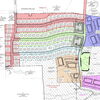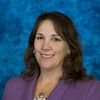Processing Your Payment
Please do not leave this page until complete. This can take a few moments.
- News
-
Editions
-
- Lists
-
Viewpoints
-
Our Events
-
Event Info
- Women's Leadership Forum 2025
- On the Road with Mainebiz in Bethel
- Health Care Forum 2025
- On The Road with Mainebiz in Greenville
- On The Road with Mainebiz in Waterville
- Small Business Forum 2025
- Outstanding Women in Business Reception 2025
- On The Road with Mainebiz in Bath
- 60 Ideas in 60 Minutes Portland 2025
- 40 Under 40 Awards Reception 2025
- On The Road with Mainebiz in Lewiston / Auburn
- 60 Ideas in 60 Minutes Bangor 2025
Award Honorees
- 2025 Business Leaders of the Year
- 2024 Women to Watch Honorees
- 2024 Business Leaders of the Year
- 2023 NextUp: 40 Under 40 Honorees
- 2023 Women to Watch Honorees
- 2023 Business Leaders of the Year
- 2022 NextUp: 40 Under 40 Honorees
- 2022 Women to Watch Honorees
- 2022 Business Leaders of the Year
-
-
Calendar
-
Biz Marketplace
- News
- Editions
- Lists
- Viewpoints
-
Our Events
Event Info
- View all Events
- Women's Leadership Forum 2025
- On the Road with Mainebiz in Bethel
- Health Care Forum 2025
- On The Road with Mainebiz in Greenville
- On The Road with Mainebiz in Waterville
- + More
Award Honorees
- 2025 Business Leaders of the Year
- 2024 Women to Watch Honorees
- 2024 Business Leaders of the Year
- 2023 NextUp: 40 Under 40 Honorees
- 2023 Women to Watch Honorees
- 2023 Business Leaders of the Year
- + More
- 2022 NextUp: 40 Under 40 Honorees
- 2022 Women to Watch Honorees
- 2022 Business Leaders of the Year
- Nomination Forms
- Calendar
- Biz Marketplace
$10M COVID-19 grant is 'game-changer' for Penobscot Community Health Care
A $10 million grant that's part of special COVID-19 response funding for community health centers is a "game-changer" for Bangor-based Penobscot Community Health Care, expanding access to tens of thousands of northern Maine residents, system officials said.
The grant is part of a total $41 million that went to 18 Maine federally qualified health centers as part of the American Rescue Act passed by Congress earlier this month, with the money coming from the Health Resources and Services Administration.
The PCHC grant not only supports and expands COVID-19 vaccines and testing, but will support increased access to health care for the 65,000-plus patients the system serves in Penobscot, Waldo and Somerset counties, according to a news release from the health care system. It will expand delivery of preventive and primary health care services to those at higher risk for COVID-19, while expanding operational capacity with funds for physical infrastructure and new mobile units.
PCHC has had a sharp drop in revenue since the pandemic began a year ago — 20% at times. The system has also invested substantially in its pandemic response by expanding technology infrastructure to enable telehealth, mobile testing and online registration, building testing capacity, providing on-site and mobile vaccination clinics and making other necessary infrastructure improvements, the release said.
“We are extraordinarily grateful for this grant and embrace our responsibility to advance health equity and social justice,” said Lori Dwyer, PCHC’s president and CEO. “This funding is truly necessary to help health centers absorb the tremendous costs associated with the pandemic response and lost revenue associated with the lockdown and delays in care, and will allow us to continue to play a vital role in the public health response.
“For us, health care is a right, not a privilege,” Dwyer said. “It needs to be accessible to everyone, whether via technology, in their home, in our clinics or walk-in care sites, or through mobile outreach.”
PCHC’s pandemic response has focused on vulnerable and underserved populations and included active outreach to historically marginalized populations, vaccine clinics in senior residences and even home visits to deliver vaccine to rural folks with travel challenges, the release said.
PCHC moves forward in pandemic
Despite the challenges related to the drop in revenue and attention to pandemic-related services, the health care system in the past year has continued to invest in programs that improve the accessibility of primary health care services for its patients, including:
- Opening a new primary-care practice focusing on adult wellness, including mental health
- Continuing to expand recovery services
- Increasing access to medically assisted treatment for opioid use disorder (which has surged during the pandemic)
- Improving patient access through the use of technology, including telehealth and self-scheduling
- Building community care services that serve residents of nursing homes and other facilities
- Launching a nurse practitioner residency program
- Partnering with other organizations to increase access in rural areas, including Jackman and Winterport
The health care system earlier this month also announced the East Coast's first dental therapist, a new position that allows some functions formerly reserved for dentists and increases dental care access for rural residents.
Health Resources and Services Administration-funded health centers, of which there are 20 in Maine, are community-based and patient-directed organizations that deliver affordable primary health care to medically underserved communities and vulnerable populations. Health centers in Maine serve 20% of people who live in rural communities, compared to 9% nationwide. More than 91% of health center patients are individuals or families who live at or below federal poverty guidelines, and nearly 63% are racial or ethnic minorities.









0 Comments